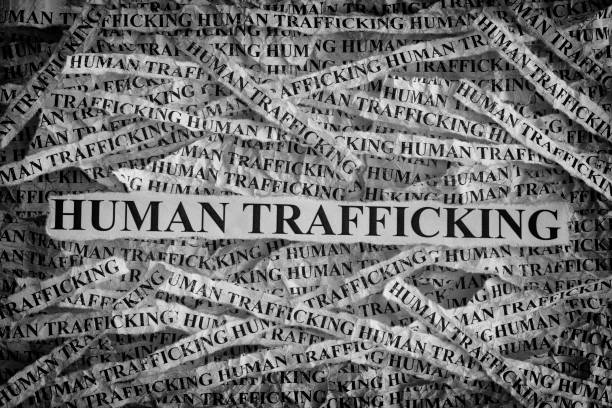Unmasking the Shadows: Human Trafficking in the Lone Star State


Understanding Human Trafficking
Human trafficking is a grave violation of human rights and involves the recruitment, transportation, transfer, harboring, or receipt of persons through force, coercion, or deception for the purpose of exploitation. This exploitation can take various forms, including sexual exploitation, forced labor, domestic servitude, and organ trafficking. Traffickers prey on the vulnerability of their victims, often targeting marginalized communities, immigrants, and individuals facing economic hardships.
The Scope of the Issue in Texas
Texas’ strategic location, with its extensive border along Mexico, makes it a prime destination for traffickers seeking to exploit the vulnerable. The state’s robust industries, such as agriculture, construction, and hospitality, allow traffickers to use laborers. Major cities like Houston, Dallas, and San Antonio also serve as hubs for human trafficking due to their population density and transportation networks.
The most common forms of human trafficking in Texas include:
Sex Trafficking: This form of trafficking often involves the forced prostitution or sexual exploitation of victims, frequently targeting especially vulnerable minors.
Labor Trafficking: Individuals, both foreign and domestic, are forced into various industries such as agriculture, construction, and domestic work, where they endure grueling work conditions and are denied fundamental rights.
Child Trafficking: Texas reports a disturbingly high number of cases involving the trafficking of minors who are coerced into prostitution or other forms of exploitation.

Several factors contribute to the prevalence of human trafficking in Texas:
Poverty: Economic hardships can drive individuals to accept exploitative job offers or fall prey to traffickers promising a better life.
Immigration: Undocumented immigrants are particularly vulnerable, fearing deportation if they seek help or report their traffickers.
Runaway and Homeless Youth: Runaway and homeless youth are at higher risk as traffickers prey on their vulnerability and lack of support systems.
Online Exploitation: The internet has become a breeding ground for traffickers, who lure victims through deceptive online personas.
The Role of Law Enforcement and Advocacy
Texas has taken significant steps to combat human trafficking. The state has a dedicated task force, the Texas Human Trafficking Prevention Task Force, that focuses on prevention, victim identification, and prosecution of traffickers. Additionally, various non-profit organizations and advocacy groups provide support, resources, and shelter for survivors of trafficking.
To tackle human trafficking effectively, it is essential to implement preventive measures such as:
Public Awareness: Education campaigns and community outreach can help raise awareness about the signs of trafficking and how to report it.
Support Services: Increasing access to social services, legal assistance, and mental health support can empower survivors to escape their traffickers.
Policy Reforms: Stricter legislation and law enforcement efforts are necessary to deter traffickers and hold them accountable.
Conclusion
Human trafficking is a dark and pervasive issue, but by acknowledging its presence in Texas and understanding its root causes, we can take steps toward eradicating this modern-day slavery. The collective responsibility is protecting the vulnerable, supporting survivors, and holding traffickers accountable. Like every other state, Texas must continue to shine a light on this shadowy crime and work tirelessly to ensure that the Lone Star State truly lives up to its name, offering freedom and justice for all.
Call the National Human Trafficking Resource Center to report sex trafficking, forced labor, or to get help
1-888-373-7888 or text BeFree (233733)
About Us
Broadsword Defense (BSD) is a service-disabled veteran-owned small business established in San Antonio, Texas, by a U.S. Marine Corps & Law Enforcement Veteran, David Danel.

